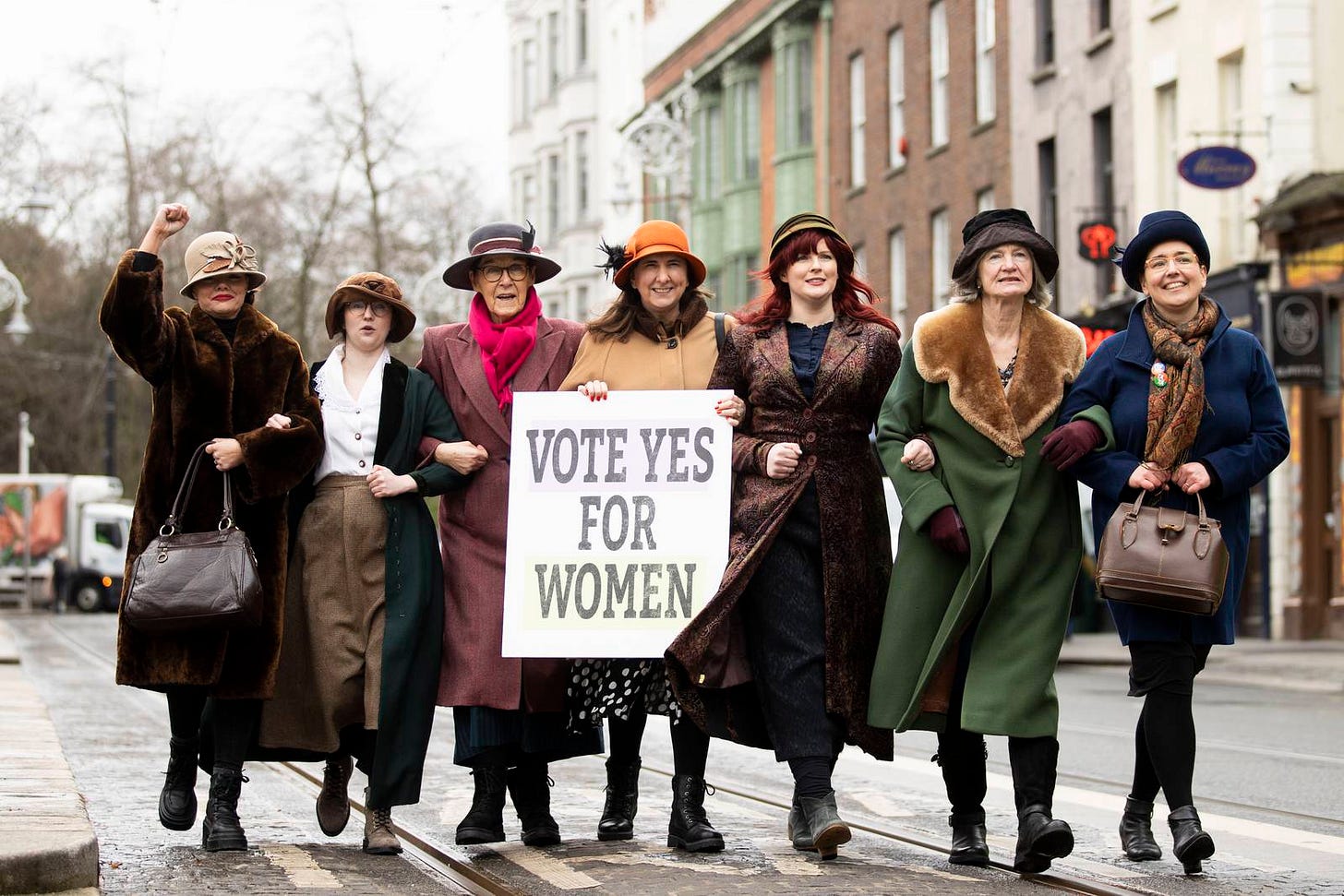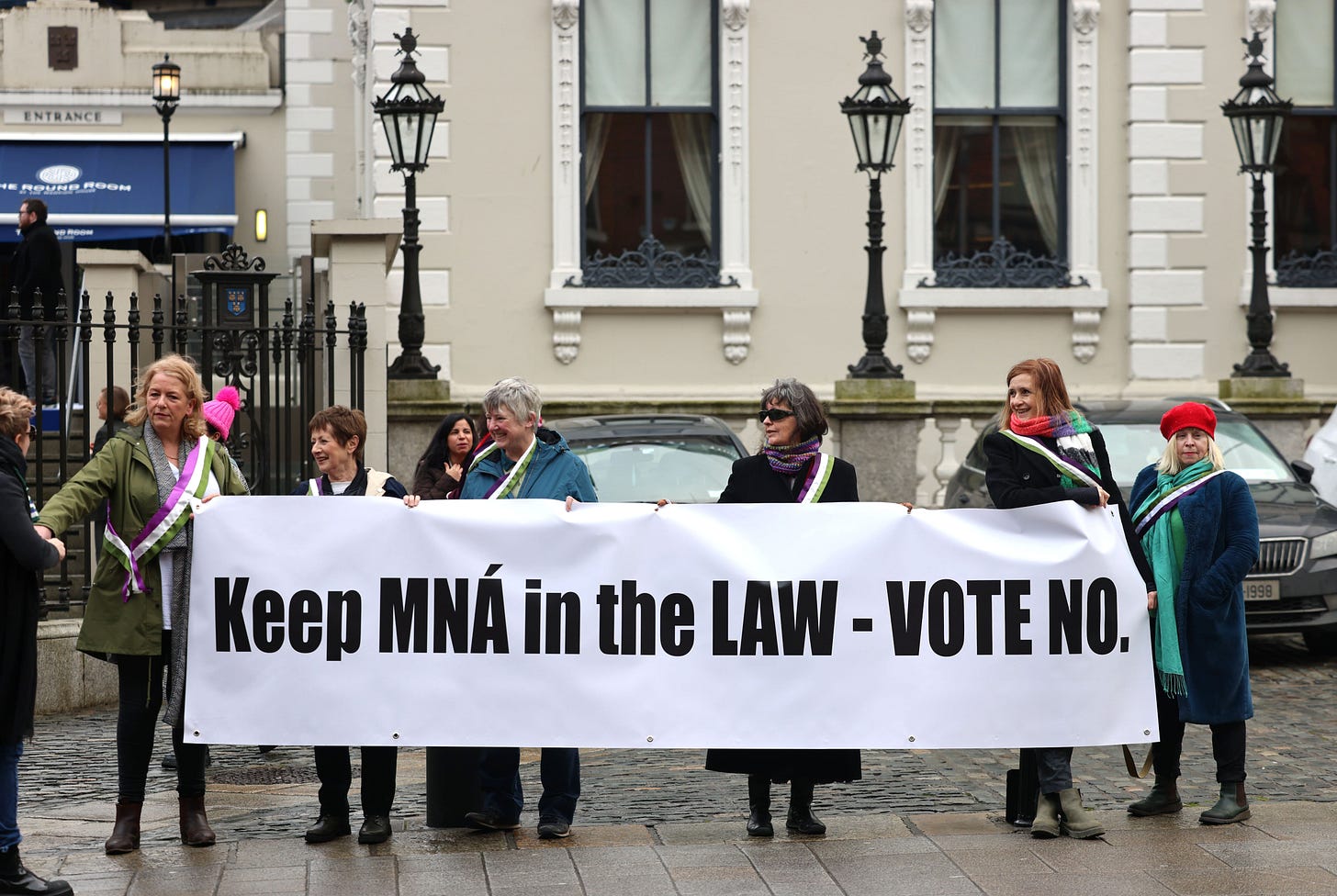
There are many seriously insulting things about the transvestification of womanhood - one of my chief beefs is the way the acronym HRT, used to describe hormone replacement therapy for women going through the menopause, has been stolen and repurposed by men who use it for aesthetic enhancement (not that it works).
First they hijacked the HRT name, then they hijacked the HRT supply chain; the increased demand for synthetic female hormones has put intense strain on an already patchy supply. In the past few years, hormones intended for sweating, sleepless women have been rerouted to autogynephiles convinced that synthetically-induced breast buds will help them reach that gender high. (They even wrote to the UN high commissioner of human rights to complain about the shortages.)
But probably even worse than all that is the way that the most vile trolling of women happens on the day purportedly to be for us and about us. Yes, we’ve reached the eve of International Women’s Day (IWD) and I am already on high alert for all the men in party shop wigs who will appear on panels, in videos, and in newspaper articles, making statements about how the day is for them, actually. The theme of IWD this year is “inclusivity”, which almost guarantees a man in a dress will be celebrated as the very bestest of women. Deep breaths, ladies. I feel like this one’s gonna be rough.
Taking the trolling to never-before-achieved levels, the Irish government and its NGO army announced a few months ago that it was time to excise the Irish constitution of any mention of women - and that the referendum on the issue would be held on IWD.

The reason? For 100 years or so, the text has contained a reference to women’s “duties in the home”, which at first glance seems mighty sexist. I grew up knowing vaguely about misogyny in the constitution. But I was also told that it didn’t have any real effect in the real lives of women, and that it was simply - symbolically - not ideal.
But as we are learning, the offending text has a progressive interpretation that could have been deployed in legal cases throughout the decades by women who didn’t want to be pushed out to work after they had kids. The text actually makes it possible to make the case that a woman’s duties to her kids are more important to society than working (hard to argue with that). Tucker Carlson (I know) and founder of the Irish women’s rights advocacy group the Countess, Laoise de Brun, explain this nicely here.
It certainly seems part of the international effort to chip away at any and all mention of sex in law and policy. The Countess have already run successful campaigns to stop the removal of sexed language in Irish law before, but it’s happening in other countries too. Just this week the Dutch government tried to remove mention of mothers from a piece of legislation, claiming they were just cleaning up the grammar, when someone spotted by chance that “mother” had been replaced with “parent from whom the child is born”. The pols claimed it was simply a mistake, but it seems like they thought they could get away with it. The backlash unequivocally proved they could not, and the change was undone.
I spoke to Sandra Adams, the spokeswoman for the Countess, who told me that the government could have, for example, made the text less sexist by proposing to edit it to simply add fathers alongside mothers. (Another Irish campaigner, Sarah Holmes, combed through the constitution text and found 114 references to male sex pronouns that nobody seems bothered about).
So is it really about evening the playing field, about making our founding legal document symbolically more egalitarian? Or does it have something to do with international pressure to gender-neutralise everything, or maybe the upcoming legal changes to surrogacy laws - or something else?
Sandra and I thrash out a few theories, and she tells me why, without clarification on a few essential points, the best thing for the people of Ireland to do tomorrow is to #VoteNoNo. Enjoy agus beannachtaí.
Grift: I take days off to TERF, which affects my income. Some people give me donations and it really helps. Just dropping this button here apropos of nothing:












Share this post